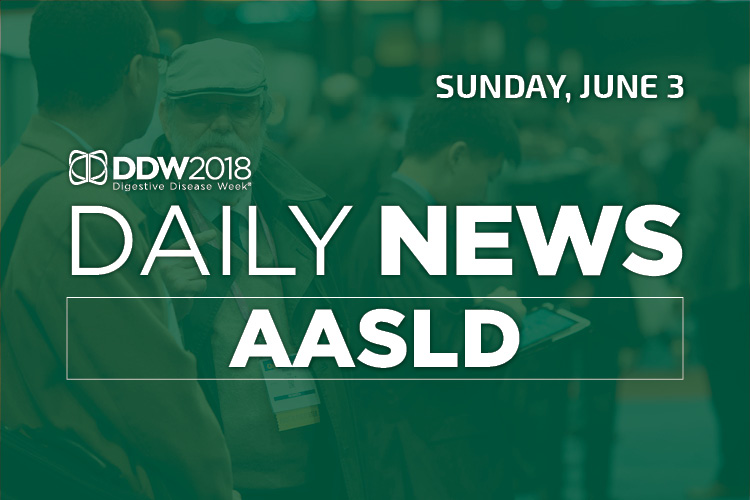
During Sunday’s AASLD State-of-the-Art Lecture Evolving Management of Cholestatic Liver Diseases, Cynthia Levy, MD, FAASLD, will discuss the treatment of primary biliary cholangitis (PBC) and primary sclerosing cholangitis (PSC), the two most common causes of chronic cholestatic liver disease in adults.
“The incidence and prevalence of PBC are rising. We need increased awareness on proper diagnosis of this disease, especially in the early, more treatable stages so that we can implement therapy,” said Dr. Levy, associate professor of medicine at the University of Miami Health System, FL.
The only first-line PBC therapy, ursodeoxycholic acid (UCDA), was introduced more than 20 years ago. A second-line therapy became available recently for patients who do not respond to UCDA therapy.
“We’ll talk about the role of obeticholic acid (OCA) for these patients,” Dr. Levy said. “We’ll discuss the indications for obeticholic acid and the appropriate dosing.”
Precision medicine is critical in PBC treatment, said Dr. Levy, noting the importance of identifying patients who are not responding to UCDA treatment.
“I will discuss how to recognize nonresponders and how to risk-stratify your patients so you know who has the greatest risk for progression and therefore needs adjuvant therapy,” she said.
Dr. Levy will also review off-label PBC therapies such as fibrates, which can also help with the management of itching.
Although there are no current treatment options for PSC, Dr. Levy will review drugs that could be used off-label. She will also review proper surveillance for malignancies in PSC patients.
“There’s an increased risk for malignancy in PSC, both hepatic and extra-hepatic,” she said. “Gastroenterologists play a very important role because PSC is associated with inflammatory bowel disease in approximately 75 percent of the cases. These patients have an increased risk of colon cancer and need a colonoscopy every year. They also need annual liver imaging for surveillance of cholangiocarcinoma.”
Dr. Levy will also discuss bile acid regulation as well as nuclear receptors that are targets for new therapies and new drugs in the pipeline for PBC and PSC treatment.
Please refer to the DDW Mobile App or the Program section in Sunday’s issue for the time and location of this and other DDW® events.




One Response
I’m also interested in optimisation of Ursodeoxycholic acid dosage in PSC and PBC and when these drugs need to be discontinued ?